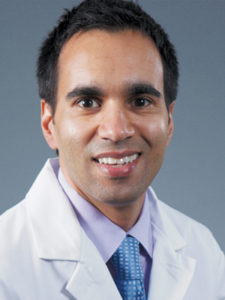
Pediatric rheumatology is a relatively small universe, but important advances can come faster than busy clinicians or researchers can keep up with. The annual Pediatric Year in Review symposium brings together the top clinical and basic/translational researchers in pediatric rheumatology and the most impactful work published since the last ACR/ARHP Annual Meeting.
“The goal is to present the most cutting-edge research … with the aim of giving a very high yield overview of what’s important to the pediatric rheumatologist, the adult rheumatologist who sees pediatric patients, and pediatric rheumatology trainees,” said symposium moderator Jay Mehta, MD, MS, Clinical Director of the Division of Rheumatology at the Children’s Hospital of Philadelphia, PA. “We will hear the latest and the greatest from the world of pediatric research on Sunday from 12:30 – 2:00 pm.”
Pamela Weiss, MD, MSCE, Associate Professor of Pediatrics at the Perelman School of Medicine at the University of Pennsylvania, Philadelphia, PA, will discuss the top articles in clinical research.

“There is ongoing and exciting research in just about all of our conditions,” Dr. Weiss said. “It will be impossible to cover all of the impactful clinical research from the past year in 30 minutes. I will be covering as many studies as possible, focusing on those that influence the way we think about and treat our pediatric patients. Pediatric research is always challenged by small sample sizes, but there are some beautiful papers out there with sophisticated epidemiologic methods that can be used to evaluate efficacy and effectiveness. The high-impact studies discussed will represent the breadth of study designs, not just the traditional randomized clinical trial.”
Berent Prakken, MD, PhD, a Professor of Immunology and Pediatrics at University Medical Center Utrecht, Utrecht, Netherlands, will discuss the top papers in basic and translational research.
“There is no way you can do a complete review of the past year in pediatric rheumatology with every important paper,” he said. “This will be a very personal selection from the most important topics in pediatric rheumatology.”
The most important topics in basic research are the ones that have true potential for clinical impact, Dr. Prakken said. The most basic question of all is how researchers decide what questions to ask and how they look for answers.
“In many cases, technology shapes our research because it is easier to ask questions about things that we can measure,” he explained. “In that sense, the questions we ask, the things we study, depend on the techniques we choose to use.”
Another way of posing research questions is gaining traction around the world: Involving patients in early discussions that define the basic questions researchers try to answer.

“Bringing patients into the discussion scares a lot of people,” Dr. Prakken said. “But there are some really good examples, including groups working with patients to write a new research agenda for JIA (juvenile idiopathic arthritis). Doing impactful researching starts with asking the right questions. That’s where patients can be a big help.”
JIA remains one of the most important areas of research in pediatric rheumatology. The search for reliable biomarkers is another.
“In fact, we are still using biomarkers like the rheumatoid factor that were discovered 75 years ago,” Dr. Prakken said. “There is something wrong here. We have to look at some very inconvenient truths about our not-so-successful search for biomarkers that can predict disease activity and reveal response to treatment.”
A third area of focus in autoinflammatory diseases in children is genetic defects that give rise to rheumatic disease. And even if the numbers of patients directly affected is small, genetic defects can give rise to insights that impact the treatment of more common rheumatic diseases.
“The Year in Review” is also the time to recognize the top researchers in pediatric rheumatology.
The James Cassidy Award from the American Academy of Pediatrics is the single most prestigious award in the pediatric rheumatology community, Dr. Mehta said. The award ceremony will also honor ACR Distinguished Fellows in pediatric rheumatology and pediatric rheumatologists recently honored as ACR Masters.
